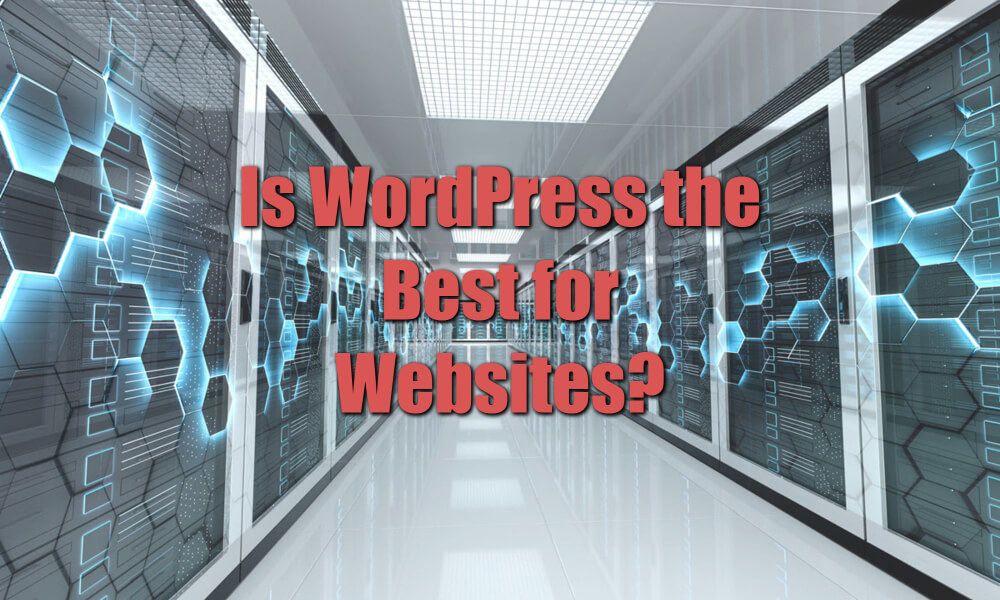Is WordPress the Best for Websites in 2023?
Are you tired of building websites that look like they were made in the 90s?
Are you ready to join the 21st century and create a sleek, modern website that actually works?
Look no further than WordPress, the premier platform for all your website-building needs (or at least, that’s what we’ll be arguing in this post).
But is WordPress really the be-all and end-all of website creation?
We’ll weigh the pros and cons and let you decide for yourself.
Buckle up, it’s about to get website-y in here!
Why WordPress is the King of Website Builders
There’s no denying it: WordPress is a major player in the world of website building.
But why is it so popular?
Here are just a few of the pros of using WordPress for your website:
User-friendliness
Let’s be real, not all of us are tech geniuses (no matter how hard we try to pretend).
That’s where WordPress comes in. With its easy-to-use drag-and-drop editor and tons of pre-designed templates, even the most technologically challenged among us can create a professional-looking website.
Flexibility
Need a simple blog?
A fully-fledged online store?
A portfolio?
A membership site?
No problem.
WordPress can handle it all.
With hundreds of thousands of plugins and themes available, you can customize your website to fit your exact needs.
Wide range of features
From contact forms to SEO optimization to social media integration, WordPress has it all. And if there’s something it doesn’t have, chances are there’s a plugin for it.
But don’t just take our word for it. Some of the most successful websites out there use WordPress, including Time Magazine, TechCrunch, and even Vogue.
So if you want a website that’s easy to use, customizable, and packed with features, WordPress is king.
The Dark Side of WordPress: Is It All Sunshine and Rainbows?
Okay, so we’ve covered the pros of using WordPress, but let’s not forget about the cons.
No platform is perfect, and WordPress definitely has its fair share of drawbacks.
Here are a few things to consider before committing to WordPress:
Security vulnerabilities
Unfortunately, because WordPress is so popular, it’s also a common target for hackers.
This means you’ll need to be diligent about keeping your website updated and secure to avoid any potential attacks.
Maintenance and updates
Speaking of updates, WordPress does require regular maintenance to keep things running smoothly. This includes things like plugin and theme updates, as well as backups and performance checks.
It’s not a huge time commitment, but it’s something to consider if you’re not a fan of technical tasks.
Limited control
While WordPress offers many customization options, there are still some limitations to what you can do with it.
If you have very specific design or functionality needs, you may find that WordPress can’t quite accommodate them.
But don’t let these drawbacks scare you off!
There are ways to mitigate the risks and ensure that your WordPress website is as secure and well-maintained as possible. And if you’re willing to put in a little extra effort, the flexibility and feature-richness of WordPress might just be worth it.
Just don’t say we didn’t warn you about the Dark Side of WordPress.
Ready for a Change? Meet the Other Players in the Website Building Game
So you’re considering your options for building a website, and WordPress isn’t quite cutting it for you.
No problem! Plenty of other platforms can help you create the website of your dreams (or at least, a website that’s close enough).
Here are a few alternatives to consider:
Squarespace
Squarespace is known for its clean, modern design and easy-to-use templates. It’s a great choice for bloggers, small businesses, and photographers.
One downside?
It can be a bit pricier than some of the other options on this list.
Wix
Wix is a user-friendly platform that’s perfect for those who want complete control over their website’s design.
With a drag-and-drop editor and tons of templates and widgets to choose from, you can really let your creative juices flow.
Just be prepared for a bit of a learning curve.
Shopify
If you’re looking to create an online store, Shopify is the way to go.
It’s a comprehensive e-commerce platform that allows you to easily manage your products, track your sales, and even process payments.
The only catch? It’s geared specifically towards online stores, so it’s not a good fit if you’re looking for something more general.
So which platform is right for you?
It really depends on your needs and budget.
Each one has its own unique features and pros and cons, so it’s worth taking the time to research and compare them before making a decision.
And hey, if all else fails, you can always just hire a web developer to build your website for you (but let’s be real, where’s the fun in that?).
The Verdict is In: Is WordPress the Best Choice for Your Website?
So, is WordPress the best platform for websites?
After considering all the pros and cons, we have to say…yes, it is (at least in our humble opinion).
While it does have its limitations and requires a bit of maintenance, the user-friendliness, flexibility, and wide range of features make it a top choice for building a website.
But don’t just take our word for it.
Check out some of the successful websites that use WordPress and see for yourself. The beauty of WordPress is that it’s adaptable to a wide range of needs and budgets, so it’s worth giving it a shot.
So go ahead and give WordPress a try.
Who knows, you might just fall in love with it (or at least have a little bit of fun building a website).
And if you do end up using WordPress, don’t forget to give us a shoutout in your website’s footer (just kidding, but not really).

